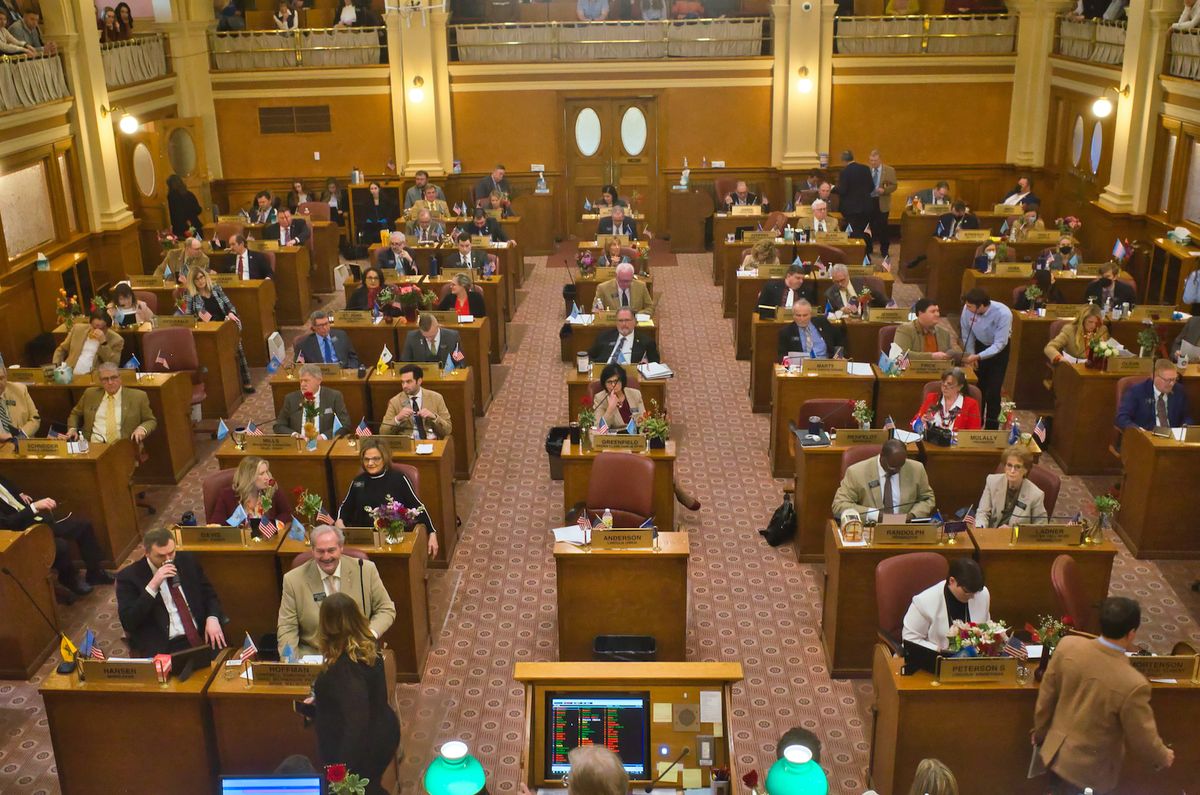House bill regulates transgender participation in school sports

South Dakota Governor Kristi Noem signed a bill early February that bans transgender women and girls from participating in high school, collegiate and intramural sports at public South Dakota schools.
This legislation, titled “An act to protect fairness in women’s sports,” was introduced by the request of Noem. The ban, which will go into effect July 1, does not cover Augustana athletic programs, which are privately funded.
Bills aimed at restricting the rights of transgender people have been a staple of South Dakota state house discourse in recent years, often bringing legislators at odds with the executive branch. Last year, Noem vetoed a similar “fairness in women’s sports’’ bill, saying it would “allow the NCAA to bully South Dakota’’ through civil litigation.
“When we ignore biological reality, girls get hurt,” said Rachel Oglesby, Noem’s senior policy advisor in testimony to a state senate committee. “Allowing men to compete in women’s sports reverses nearly 50 years of advances for women.”
Proponents in favor of the bill cited cases in other states where boys allegedly claimed to be transgender in order to achieve an advantage in their sport. State legislators and advocacy groups argued that Title IX, the federal law prohibiting gender discrimination in higher education, affirms that allowing trans women to compete in women’s sports is illegal.
While the legal issues are unsettled, the Department of Justice under President Joe Biden has issued guidance asserting that requiring transgender students to compete with their biological sex is a violation of Title IX. State legislators who supported South Dakota’s bill, however, said that the differences between biological men and women clearly contradict that line of thinking.
“If you have some acceptance of science, there is a significant physiological difference between men and women, and that is the only reason Title IX exists,” Sen. Lee Schoenbeck said during senate debate, asking his fellow senators to imagine a hypothetical scenario where South Dakota women’s basketball teams had to compete against “a six-foot eight former guy.”
The NCAA announced in January that they would update their transgender participation policy to align the rules of each sport with the rules of its professional counterparts. The association faced pressure from over 500 student athletes who signed a petition last year demanding the cancellation of championships in states that had passed laws restricting trans athlete participation.
Dan Swartos, head of the South Dakota High School Activities Association, told legislators that the bill will force the body to choose between compliance with either state or federal law and expose it to civil liability.
“We haven’t changed our policy because our policy is based on federal law,” Swartos said. “We’ve had one transgender female athlete particpate in the history of our policy.”
The SDHSAA and other opponents of similar legislation have historically argued that there is a disparity between the amount of attention given to the issue by South Dakota politicians and the low rates of participation by transgender students.
Mark Miller, Noem’s chief of staff, responded to that argument while arguing in favor of the bill.
“By putting it in law, we are ensuring that what we’re seeing all over the country does not happen in South Dakota,” Miller said. “It’s sort of like terrorism. You want to keep it over there, not let it get to here.”The bill passed the house with no debate. Despite some skepticism from senate Republicans, the bill cleared the chamber, drawing national headlines when Noem finally signed it into law. The Summit League, which includes USD and SDSU, issued a statement following the signing of the bill saying it “will continue to monitor and educate [itself] and membership on this topic.”



